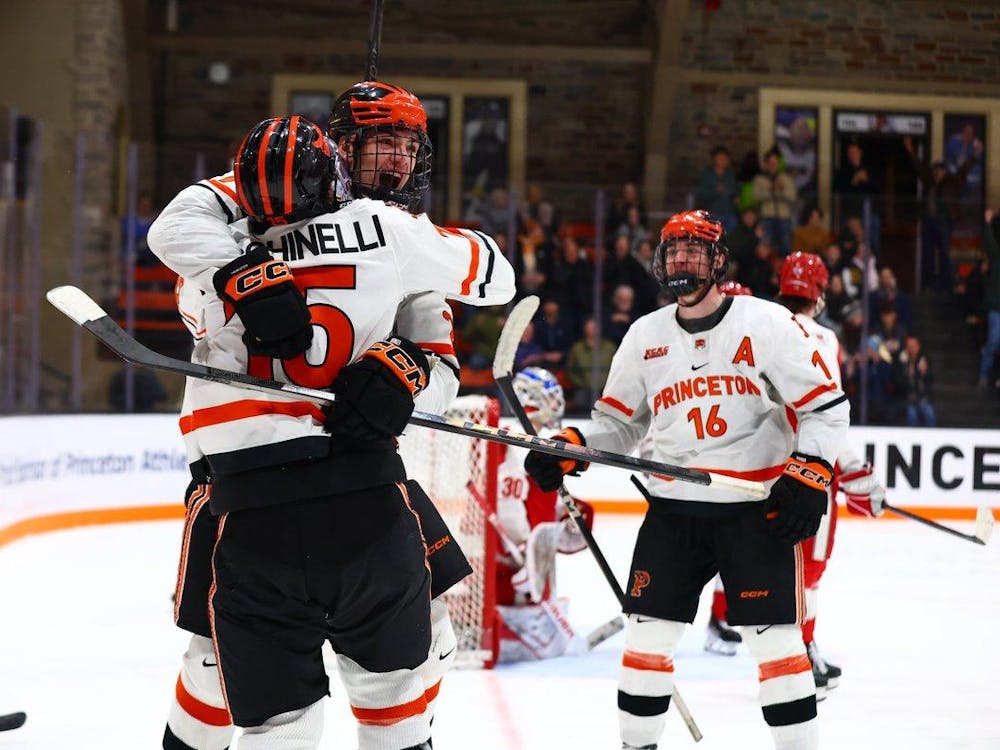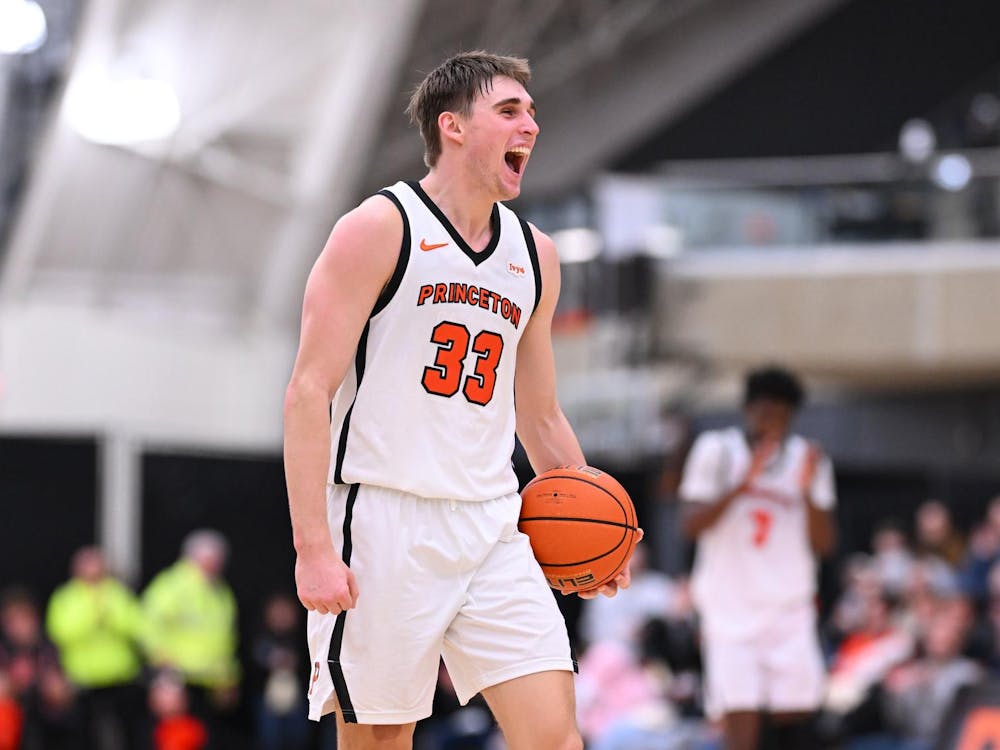When the football team met Penn on Nov. 8, it was the participation of Penn's All-Ivy defensive tackle Mitch Marrow (six tackles, three sacks, one forced fumble) that almost single-handedly secured the Quakers' 20-17 victory.
Little did anyone know at the time that Marrow's participation would eventually turn that Quaker win and four others into losses.
A Penn academic panel ruled last week that the 22-year-old Marrow, a 6-foot-5, 285-pound fifth-year senior with NFL aspirations, became a part-time student and ineligible under NCAA regulations after dropping one of his three courses Sept. 9.
In a 12-page report released Jan. 2, Penn officials announced that the university would forfeit the five wins in which Marrow subsequently played, including the Quakers' narrow victory over Princeton. The forfeitures – the first ever in the 42-year history of Ivy League football – have been approved by the league and await ratification by the NCAA.
Penn, which finished in second place behind Dartmouth, will drop from 6-4 overall and 5-2 in the Ivy League to 1-9 and 0-7, while Princeton will improve to 6-4 overall and 3-4 in the league. Game scores and individual statistics will remain in the record books, but an asterisk will denote that the results had been vacated by forfeiture due to the ineligibility of a player.
Larger controversy
The impact of the Marrow situation reaches further than the league standings, however. Although injury and mononucleosis kept him out of two games and limited his play in several others, Marrow remained one of the Ivy League's premier players and drew attention from NFL scouts throughout the season.
And academics at Penn have criticized the athletic department for their efforts to protect the eligibility of one of its prized athletes. With the Quakers' final game approaching, an athletic department representative attempted to obtain an independent study class for Marrow, a move that was ultimately rejected and then denounced in the report released last week.
According to a story in yesterday's Philadephia Inquirer, the athletic department had received eight weekly reports on the academic status of Penn's student-athletes but never recognized Marrow's part-time status.
Learning of the problem

Three days before Penn's final game against Cornell, however, Marrow's mother contacted his academic adviser to find out whether his part-time status would be reflected in a reduced tuition bill.
NCAA rules allow only full-time students to participate in collegiate sports, and when the athletic department learned of Marrow's status, D. Elton Cochran-Fikes, an associate athletic director and Penn's NCAA compliance officer, tried to secure an independent study course for Marrow with first-year assistant history professor Beth Wenger.
On the advice of undergraduate history chair Bruce Kuklick and history department chair Lynn Lees, Wenger turned down the request.
Public criticism
Kuklick, one of Penn's most prominent professors, later told the Associated Press that the athletic department's officials "don't have a sense of the academic mission of the university and they don't have any sense of scholarly values. They embarrass us."

"It seemed quite clear what they were trying to do," Lees told the Associated Press. "They were trying to get an academic cover for this kid so he can play football."
One day before the Quakers' season finale, Cochran-Fikes finally succeeded in arranging for Marrow to take an independent study course with legal studies professor Kenneth Shropshire, also the school's representative to the NCAA. But the course addition was denied Nov. 26 by Robert Rescorla, associate dean of the College, because the Sept. 19 deadline for adding courses had passed.
After the story of Marrow's status appeared in the Nov. 27 Inquirer and soon received national coverage, the university announced Dec. 1 that it would conduct an internal investigation.
Final analysis
In the report that resulted, the university panel ruled that the course was irrelevant to Marrow's eligibility; the senior had been ineligible since early September, when he dropped one of his three classes.
But the panel also faulted the athletic department for its attempts to restore Marrow's eligibility retroactively, instead of notifying Penn administrators and Ivy League officials when it was informed of Marrow's status.
Wednesday, Penn head football coach Al Bagnoli told the Inquirer he knew nothing about Mar-row's academic status until Nov. 19, but he accepted the forfeitures.
"It's pretty clear-cut," Bagnoli told the Inquirer. "We found out what happened and self-reported it, so there's no other choice. We used an illegal player.
"Whether it was intentional or not intentional, it doesn't matter. Those are the consequences. Am I happy? No, but I realize we have no options."
Princeton head football coach Steve Tosches and Director of Athletics Gary Walters '67 declined to comment for this article. (The Associated Press contributed to this story.)







